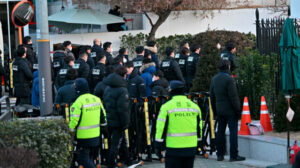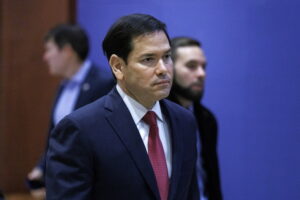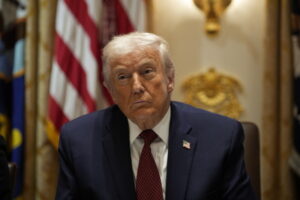Investigators attempting to arrest South Korea‘s ousted president Yoon Suk Yeol this morning were unable to complete their mission and were forced to leave the presidential residence after being prevented for several hours by an army unit from executing the warrant.
According to a statement from the High-level Corruption Investigation Agency, a decision was made a short while ago to suspend the operation to ensure the safety of the agents who went to the Yoon residence.
An attorney for Yoon Sock-yell said in a statement released this morning that the attempt to execute his arrest warrant is “illegal” and that he will pursue legal action, without making clear what that might be.
If Yoon, who officially remains head of state until the Constitutional Court rules no later than June whether he will indeed be removed from office, is arrested, it will be an unprecedented event in the Asian nation.
Why Yoon has not yet been arrested
Yoon, a former prosecutor, has for weeks defied investigators’ efforts to question him. The last time he is known to have left his residence was Dec. 12, when he went to the nearby presidential office to deliver a televised address to the nation, saying he would fight against efforts to remove him from power.
Investigators from South Korea’s anti-corruption agency are looking into charges of corruption as Yoon, apparently frustrated that his policies were being blocked by an opposition-dominated parliament, declared martial law on Dec. 3 and sent troops to surround the National Assembly.
The parliament overturned the decision within hours in a unanimous vote and ousted Yoon on December 14, accusing him of sedition, while South Korean anti-corruption authorities and prosecutors launched separate investigations into the events.
A Seoul court issued an arrest warrant for Yoon on Tuesday, but enforcement is complicated while he remains in his official residence. Lawyers for Yoon, who filed an objection to the warrant on Thursday, argue that it cannot be executed at his residence because of a law that protects from search areas potentially related to military secrets without the consent of the person in charge. The warrant is valid for one week.
In addition, they argue that the Senior Officials Corruption Investigation Agency, which is leading the joint investigation with police and military investigators, does not have the authority to investigate allegations of mutiny. Consequently – according to them – police officers who take part in an operation to arrest Yoon may themselves be arrested by the “presidential security agency or even civilians.”
Ask me anything
Explore related questions





